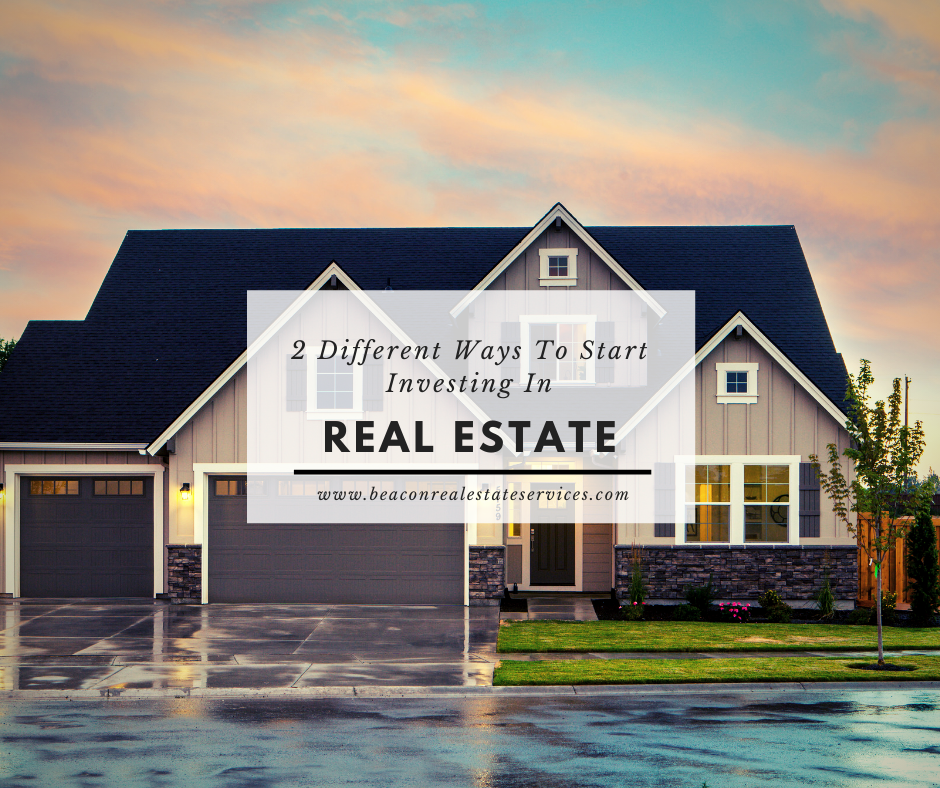
There are a lot of different opinions on how to start investing in real estate! HGTV tries to make investing in real estate look easy but it is harder than it looks. Have you seen bandit signs around your town claiming you can make $100k+ as a beginner. If it sounds too good to be true... it probably is!
Let's take a look at two different methodologies on how to start investing in real estate. Some people believe in the Robert Kiyosaki method, author of Rich Dad Poor Dad, of using Other People’s Money (OPM). Yet other people believe in the Dave Ramsey method, author of The Total Money Makeover, of putting 100% down. How are we to discern which one is correct? One thing all the gurus agree on is that you make your money when you buy!
Robert’s View on Investing in Real Estate
Robert Kiyosaki is a big proponent of using OPM for building businesses and investing in real estate. What this means is that you borrow money from the bank and other investors in order to put together a deal. This is a really popular idea because it is easy to sell books and seminars on having no money into the deal.
In reality, banks and other investors want to know that the person putting together the deal knows what they are doing! I would also say that the level of risk goes up when a deal is structured like this. It is true that Fannie Mae will allow an investor to carry up to 10 mortgages total; however, a potential investor will need a very large income and reserves in order to qualify for that many loans.
Dave’s View on Investing in Real Estate
Dave Ramsey is a big proponent of being 100% debt free, so this is very different than running out and getting a bunch of loans to build a real estate portfolio. Dave actually did what Robert believes everyone should do and it backfired. Big time! Dave openly admits how his loans were called due by the bank on the properties he owned. When he couldn’t refinance the loans, it caused a chain reaction resulting in several foreclosures and ultimately a bankruptcy.
From there Dave started looking at what the Bible had to say about how to manage money. From that experience Dave wrote a book, started teaching classes, and ended up on the radio giving personal finance advice. Dave is still investing in real estate, but he takes his time and only pays cash for properties. Check out this clip from Dave’s radio show about how he invests in real estate.
Let’s Compare the Returns on two Different Opinions
Robert's View
Let's look at a home in Aurora, CO with 2,000 s.f., 4 beds, and 3 baths. The cost would be around $400k. Craigslist.com shows the rental rate is around $2,500 per month/ $30,000 per year before vacancy loss. Robert would say get a loan for 80% of the purchase price and do the deal. A model I have shows annual cash flow of $3,103 after the mortgage, insurance, property taxes, and minor maintenance are paid. This would be a cash on cash return of 4%.
Pro: It is easier to come up with $80,000 for the down payment than $400,000.
Con: One major repair could easily wipe out an entire year of cash flow.
Dave's View
Using the same home as above the 100% down method would produce around $22,560 in annual cash flow after the insurance, property taxes, and minor maintenance are paid. The cash on cash return for this method would be 6%. We should be less concerned with the percentage and more concerned with the real cash flow. After all, we can only take cash to the bank.
Pro: Great cash flow.
Con: It takes a long time to save up the money to invest in Denver.
Final Thoughts
You could borrow money or save up to put 100% down as you start investing in real estate. Robert believes you should get loans. Dave believes you should put 100% down. The 100% down method was a lot easier 6 years ago when the prices were a fraction of what they are today. I have seen people get into a bad position on a rental property.